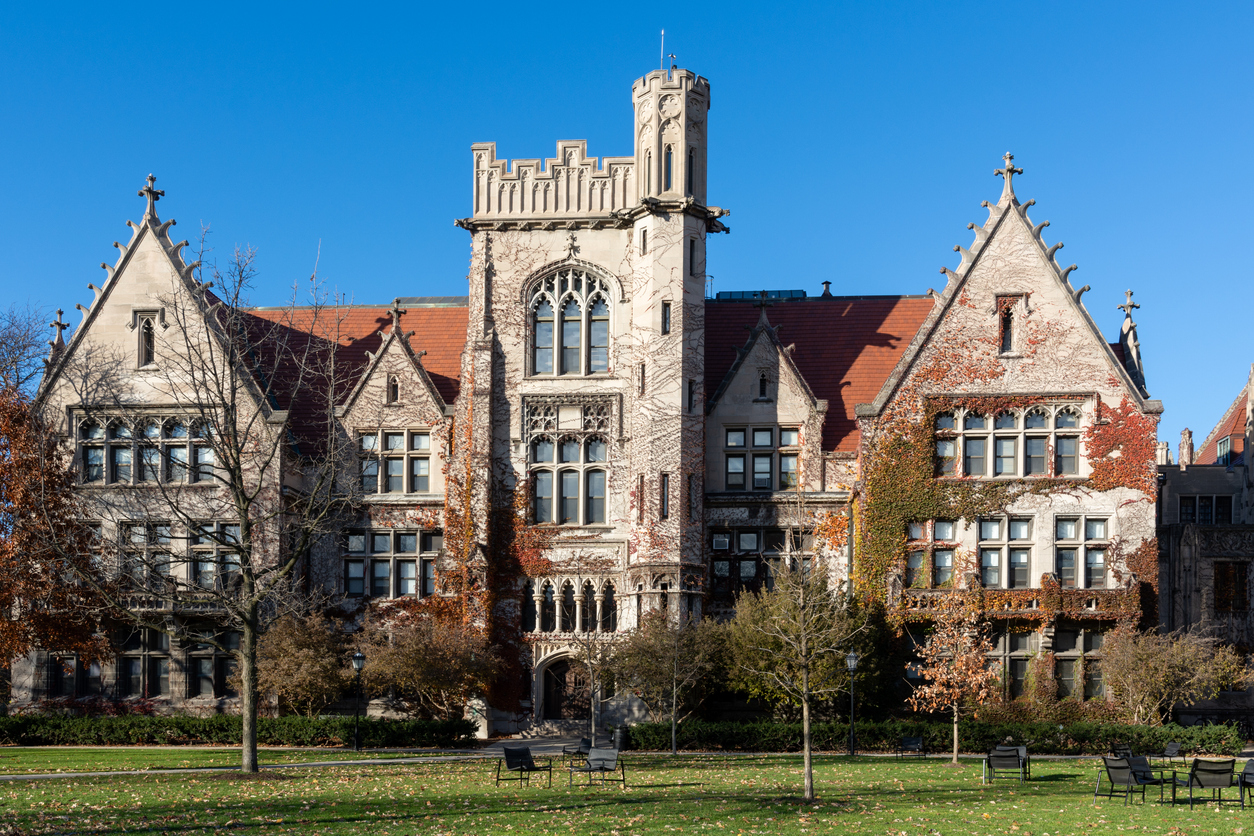After a spring of protests, how colleges should plan for the fall ahead
It’s not over yet.

One of the most tumultuous academic years of the last few decades is drawing to a close.
The pro-Palestinian protests have captured America’s attention with their tent cities, occasional violent clashes with police and some antisemitic sentiments. They turned the last few weeks of the semester on their head in many cases, and even led to cancelled commencement ceremonies.
As we ease into the summer and what is likely to be a relative period of calm on campus, university leaders are surely already thinking of next year. While it’s possible the Israel-Hamas conflict will end by then, it’s unlikely the issues it raised will entirely dissipate. Universities will need to deal with well-rested crops of students, the anniversary of the Oct. 7 terrorist attacks that began the conflict and the U.S. presidential election.
To understand how higher education should plan over the coming summer months, PR Daily sat down with Phil Singer, owner and CEO of Marathon Strategies. Singer began his career in Washington, D.C., working for high-ranking Democrats including Senator Chuck Schumer and the Hillary Clinton 2008 presidential primary campaign. He’s since transitioned to the world of communications and PR, including a strong higher education practice.
“A perfect storm has ensued that has put higher ed in the spotlight in a way that it hasn’t been in many, many years, if ever,” Singer said. “And as a result, I think it’s created a unique set of communications challenges that colleges and universities haven’t faced in a fit in a long time.”
All eyes on universities
With his background, Singer is quick to put the current scrutiny of higher education into its political context.
With the culture wars still raging, Singer says that higher education makes “an attractive target” due to its ivory tower reputation, allegations of “wokeism” on campus, the high cost of a college education and, yes, the Palestinian protests.
And that means that colleges have to deal with new constituencies they may never have considered before: Congress and the political community and the general public.
That means changing messaging and language. Singer pointed to the disastrous Congressional hearing that brought about the resignation of the presidents of both Harvard and UPenn.
“A lot of that testimony felt like it was geared towards keeping the university communities,” Singer said. Their responses were often criticized as being “legalistic” because they were speaking in the careful terms of academia.
“It felt as though they were speaking to the faculty, student body and others in the ivory tower,” Singer said. “So, I think, one, you’ve got to keep in mind that you’re speaking to a broader audience now, and you’ve got to speak in English.”
Singer also recommends using the same rigorous media and Congressional training he and his colleagues used to follow when prepping Schumer for the Sunday morning shows. That means “murder boards,” the political term for tough questions from a panel of harsh questioners to prepare for a grilling.
Read more: How CEOs prepare for Congressional hearings
He wryly noted that these were “very cathartic for the staff.”
“You’re not serving the chancellor or the president if you don’t ask tough questions,” said Singler. “But I think sometimes there’s a bit of reticence when it comes to doing so. Don’t pull your punches because members of Congress certainly aren’t.”
Handling chaos on campus
But the core constituency of institutes of higher learning are still students, staff, donors and parents. The most professional Congressional hearing in the world won’t save you if you’ve lost the faith of those audiences.
Singer said that two of the most important things for universities to determine is what do they stand for and what won’t they stand for.
“What is the role of the university is ultimately the question that all of these different schools have to ask themselves,” Singer said. “Is it to take a position on world issues? In many respects, universities are mini-nation states: they have police forces, they have health systems. But is it their role to take a position on the news of the day and current events? Or is it their position to convene and to educate?”
He points to the University of Chicago – his alma mater – as a school that has done a good job drawing its line in the sand.
“Once the (protestors’) demands veered into the university taking a position and compromising its academic neutrality, (the president) said, ‘that’s not negotiable. And so we were breaking up the encampment.’ And that’s straightforward.”
Just after the University of Chicago’s encampment was dismantled, President Paul Alivisatos issued a statement making it clear where there was common ground – and where they couldn’t yield.
“Over multiple days, including through the weekend, we engaged with the representatives of the encampment to work toward a resolution. There were areas where we were able to achieve common ground, but ultimately a number of the intractable and inflexible aspects of their demands were fundamentally incompatible with the University’s principled dedication to institutional neutrality. As such, we could not come to a resolution.”
The other area where Singer says there can be no compromise is on public safety.
“One of the things that we’ve been advising clients is, public safety is a non-negotiable,” Singer said. “The right to assemble, free speech, is sacrosanct for sure, but when it infringes upon or threatens public safety, you got to move in. And so from a communications perspective, that’s clear-cut, easily conveyed, and something that is easily defended.”
Relatedly, he said that while communications should work “hand in glove” with operations, this is a situation where operations should lead the way in creating clear policies that communications can disseminate to the community.
“If the policy is unclear or ambiguous or they’re trying to have it both ways, you could write a Lincoln-esque statement, but it’s not going to do anything, because there’s confusion as what the policy is,” Singer said.
As we look ahead to the fall, the biggest suggestion Singer has is to start planning now. Understand your non-negotiables and don’t expect the situation to resolve itself.
“Plan for the worst, hope for the best,” said Singer. “Because it could be fine or it could be really could be a really intense fall.”
Allison Carter is editor-in-chief of PR Daily. Follow her on X or LinkedIn.







